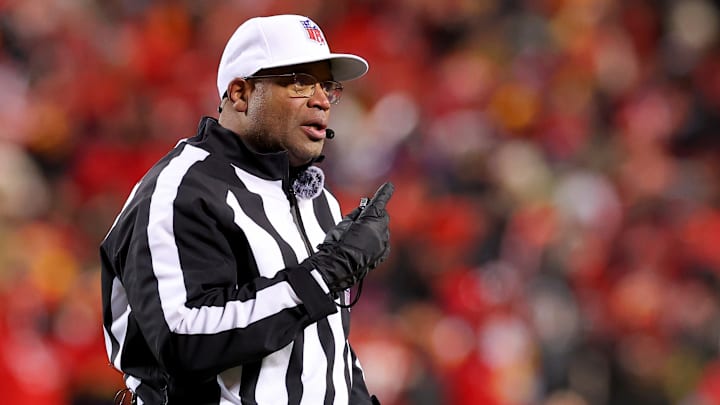Every year in the National Football League, new rules are introduced or changes are made that have varying effects on the actual product. For better or worse, it's the league annual attempt to shore up the game that has become the most popular in the U.S. with a burgeoning fan base around the world.
Fans and players are often excited and curious about what these changes will mean for the upcoming season, as it alters the way the game is played. So what did the NFL owners approve for this season? What's going to be different in 2023?
Here's a rundown of the approved rule changes around the NFL for the coming season.
Introducing No. 0
Players are now able to wear the number zero on their jerseys. While the league used to have strict rules on which positions could wear which numbers, that also included a limited view of the number zero as not an actual number. However, recent years have included similar changes at the college level as players seem to like single-digit numbers and now the NFL has followed suit.
Potential Fourth Down Reviews
In the past, a failed fourth-down conversion that looked quite close in the replay would require a coach's challenge in order to take a closer look. Now, however, replay officials can just go right back to the tape if they deem it worthy of a review. It's faster, better for coaches, and aids the intergrity of the on-field product.
Clarifying Penalties
Both Launching and Tripping have been added to the personal foul list, which means both penalties will now cost a team 15 yards. Launching is when a defender leaves one or both feet to make a tackle. Tripping is now a 15-yard penalty rather than a 10-yard penalty in the past. Also, illegal punts, drop kicks, or place kicks are now penalized the same as an illegal forward pass (loss of down). The words "butt", "ram", and "spear" have also been removed from the list of ways a player can use his helmet against an opposing player, in an effort to clarify the language in rule books.
Adjusting the Play Clock
In the past, coaches or players would have to request an official to adjust the play clock (to add more time to it) when a play was reviewed but now the play clock will also be auto-adjusted just like any other aspect.
Halting Halftime Extensions
In the past, it was possible for a team on offense to earn an untimed down at the end of halftime, extending halftime by a single play, even after committing an offensive penalty like a "holding" call. Now, teams will not be given that extra down if the clock hits zero.
Fair Catches on Kickoffs
The NFL is going forward with an experimental one-year trial run on a rule change that will allow teams to call for a fair catch on kickoffs in order to start with the ball on their own 25-yard line. That means that any kickoff between the 25 to 0 yard line could just be called as a fair catch in order for a team to automatically start like it was a touchback.
